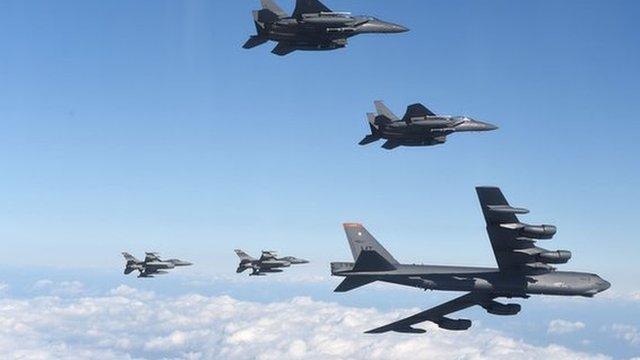North Korea fires long-range rocket despite warnings
- Published
John Sudworth: North Korea's thinking behind launch might be to get increased leverage over US and China
North Korea has fired a long-range rocket, which critics say is a test of banned missile technology.
A state TV announcer said that North Korea had successfully placed a satellite in orbit.
The launch was condemned by Japan, South Korea and the US, who have requested an emergency meeting of the UN Security Council later on Sunday.
South Korea says it is to begin discussing with the US the deployment of a missile defence system.
Senior defence official Ryu Je-Seung said if the THAAD missile system - considered one of the most advanced in the world - were deployed it would be only to counter the threat from the North.
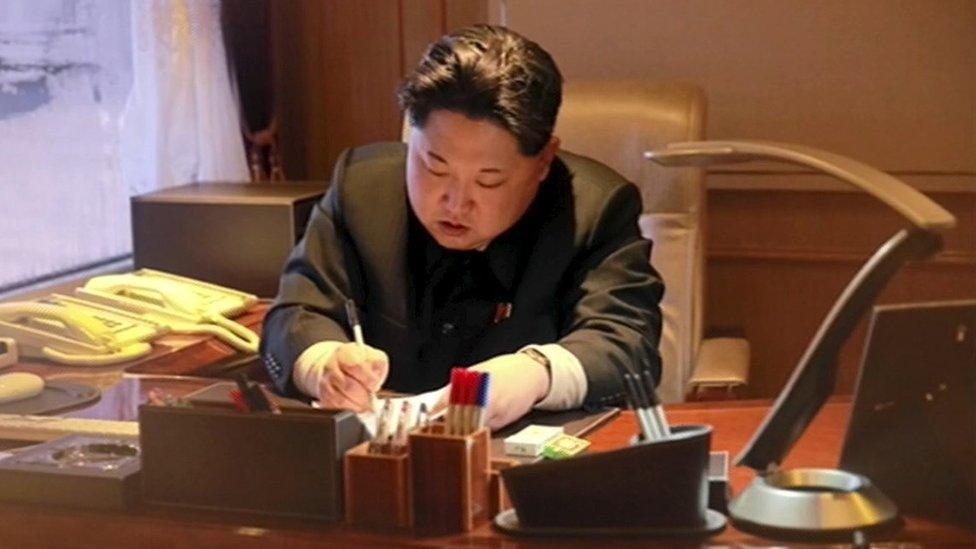
Kim Jong-un is shown signing-off on the rocket launch

And watching the launch
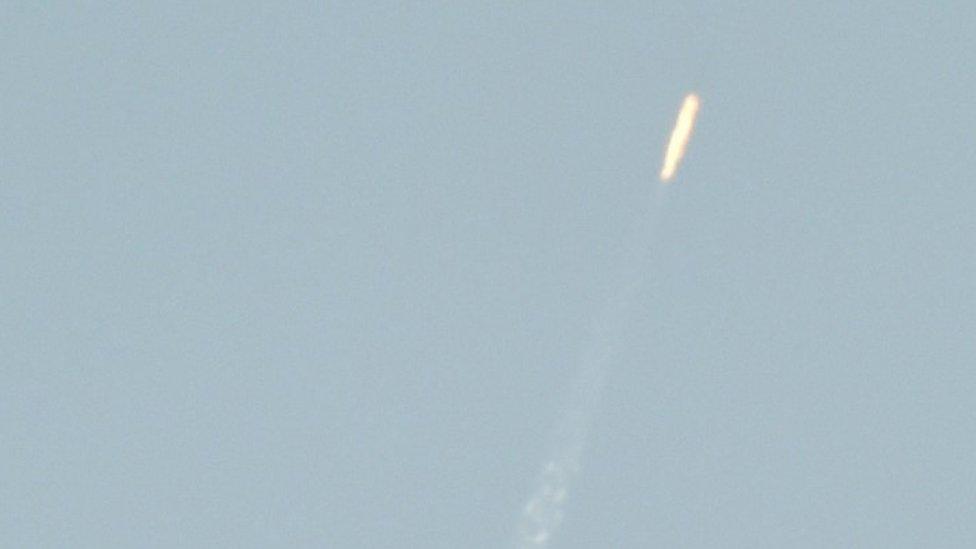
An object which appeared to be a rocket was spotted above North Korean territory from the Chinese border city of Dandong
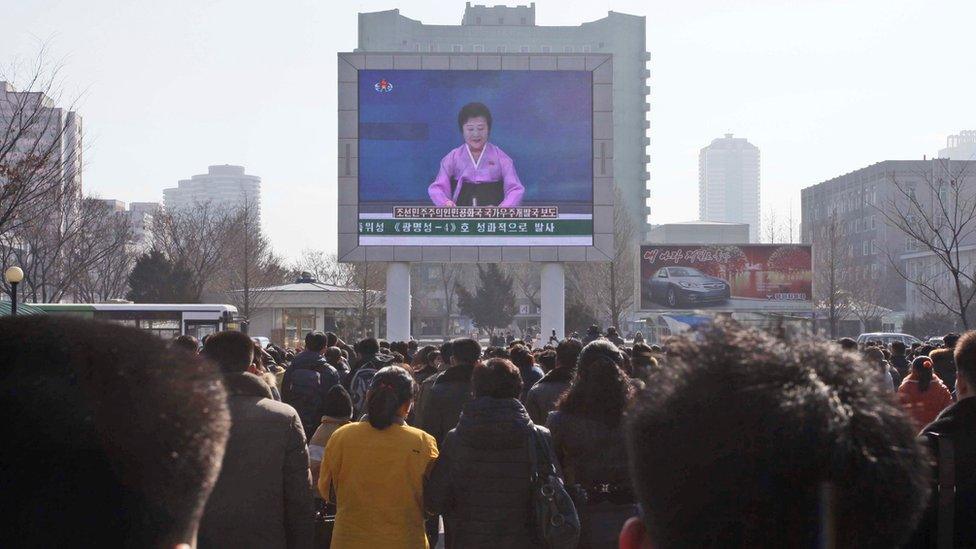
North Koreans watched the launch announcement on a big screen in the capital Pyongyang
'Fascinating vapour'
In a statement, the North Korean National Aerospace Development Administration said earth observation satellite Kwangmyongsong-4 had entered orbit about 10 minutes after lift-off from the Sohae space centre in North Phyongan province.
Announcing the launch on state TV, a newsreader said it had been ordered by North Korea's leader Kim Jong-un and said the country planned to launch more satellites in the future.
"The fascinating vapour of Juche satellite trailing in the clear and blue sky in spring of February on the threshold of the Day of the Shining Star,'' was how the launch was described.
South Korean Defence Ministry spokesman Moon Sang Gyun said a warship had detected the launch at 09:31 (00:31 GMT).
South Korean MPs were told in a behind-closed-doors briefing by the country's spy agency later on Sunday that the launch should be treated as a ballistic missile test as the satellite it put into orbit would be useless.
The payload was presumed to weigh 200kg (440lbs), double the size of the one launched in 2012, but much lighter than the 800-1,500kg usual for a satellite.
They were also reportedly told North Korea has the technology for inter-continental ballistic missiles and is preparing a fifth nuclear test, South Korean news agency Yonhap reported.
The launch was roundly condemned by the international community. US Secretary of State John Kerry called it a "flagrant violation" of UN resolutions and warned of "significant measures to hold the DPRK [North Korea] to account."
China said it "regrets" North Korea's actions but urged "the relevant parties" to "refrain from taking actions that may further escalate tensions on the Korean peninsula".

Analysis: BBC's John Sudworth in Beijing
Sunday's launch does not significantly alter the strategic balance of power in North East Asia. It is not the first time North Korea has attempted to put an object into space using a long-range rocket.
But it is nonetheless a highly-provocative act, hence the reaction from Seoul, Tokyo and Washington, calling it "unforgivable", "intolerable" and a "major provocation."
The significance is in the timing, with the launch coming just a month after the North's fourth nuclear test and with the UN Security Council in the middle of weighing its sanctions response.
Beijing too is unlikely to be under any illusion that the real purpose here is the test of the missile itself. After all, if Pyongyang wanted to put up satellites it could pay its old ally to do so at a fraction of the price.
But China is, as always, treading a careful line, issuing a much more nuanced statement of "regret". Its biggest fear is pushing an already isolated and heavily sanctioned neighbour towards economic and political collapse.
And so while each such rocket launch takes North Korea one more step towards its stated goal of a deliverable nuclear weapons system (although probably still years away) the international impasse over what to do about it is likely to continue.

Contenders for the Republican ticket in the US presidential election this year were asked for their reaction during a debate in New Hampshire.
Donald Trump said China was the key. "I would get on with China. Let China solve that problem." Jeb Bush said he would not rule out an attack on North Korea. "If a pre-emptive strike is necessary to keep us safe, then we should do it."
North Korea last fired a long-range rocket in 2012 to put, what it said was, a communications satellite into orbit. But experts say no signal has ever been detected.
UN Security Council resolutions ban the state from carrying out any nuclear or ballistic missile tests.
The North insists its space programme is purely scientific in nature but the US, South Korea and even ally China say the rocket launches are aimed at developing inter-continental ballistic missiles.

North Korea's rocket launches
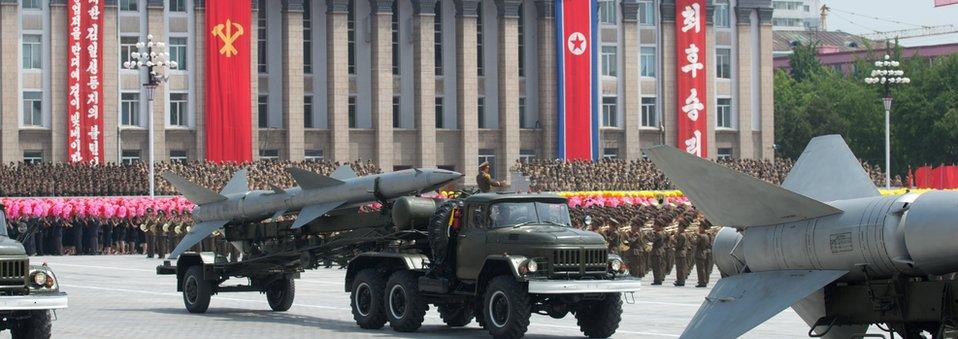
February 2016: Launch of rocket reportedly carrying satellite
May 2015: North Korea announces it has successfully tested a submarine-launched missile for the first time, but scepticism is then poured on the claim
Dec 2012: North Korea launches three-stage rocket, says it successfully put a satellite into orbit; US defence officials confirm object in orbit
Apr 2012: Three-stage rocket explodes just after take-off, falls into sea
Apr 2009: Three-stage rocket launched; North Korea says it was a success, US says it failed and fell into the sea
Jul 2006: North Korea test-fires a long-range Taepodong-2 missile; US said it failed shortly after take-off
- Published3 February 2016

- Published7 January 2016
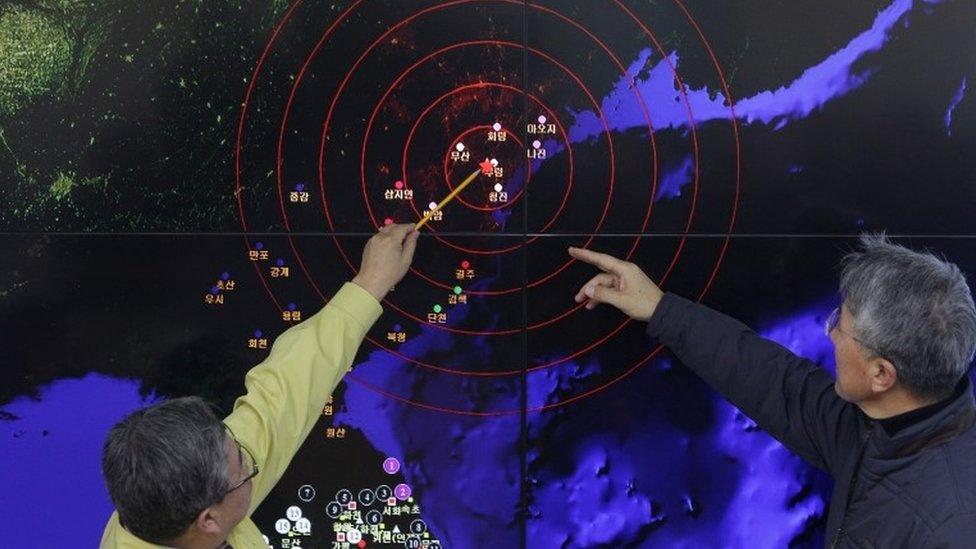
- Published6 January 2016
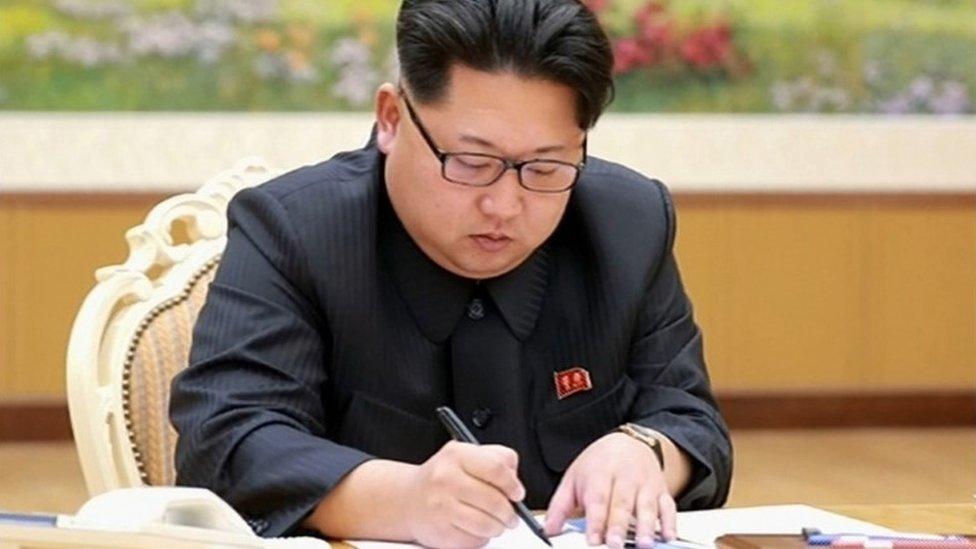
- Published10 January 2016
